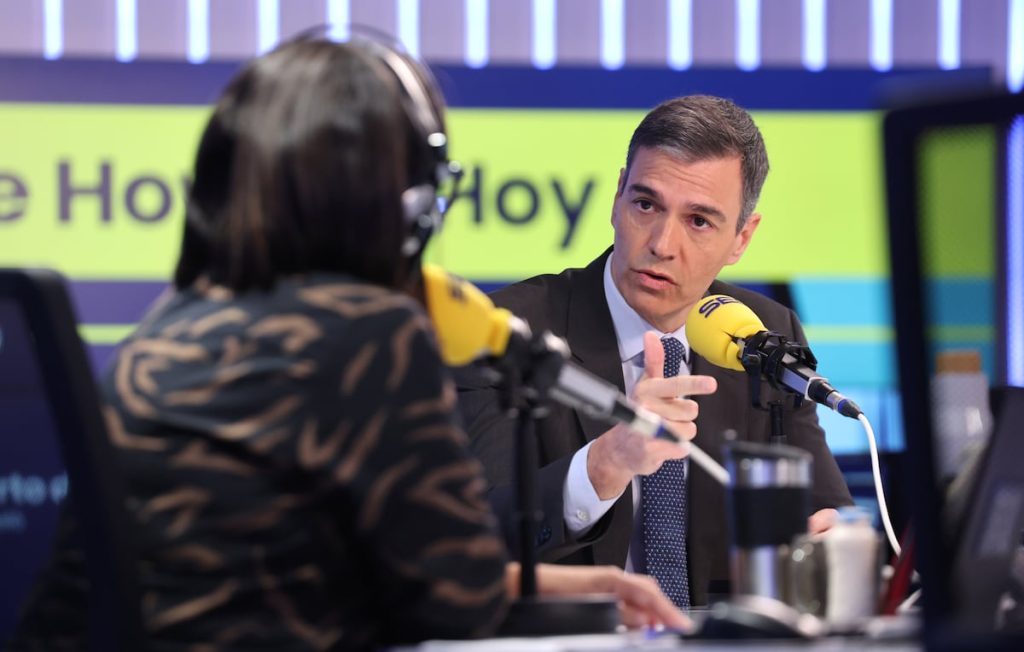In his second interview since his five-day disappearance from the public scene, Pedro Sánchez begins to explain in more detail what was going through his mind, and the process that led him to this unprecedented period of reflection that caused great anxiety for the PSOE and much of the progressive world. In an interview on the SER radio station with Ángels Barceló, Sánchez admitted that he was on the verge of resigning. However, he now states that after his reflection and the support he has received, he not only is willing to continue, but he does not even consider a succession debate because he wants to finish the legislature and even seek re-election. These five days have brought the PSOE to the brink, as it became clear that there was no prepared succession plan, and the dependence on the leader is total, which worries many leaders about the future. However, Sánchez has not even considered opening the door to this debate.
Sánchez continues to vague about the democratic regeneration plan that is being prepared by the Moncloa, which seems to be the main message coming out of his reflection over the five days. He emphasizes the need to fight against what he calls “the mudslinging machine,” a term from Umberto Eco. He has hinted at the possibility of changing the law to renew the Judicial Power by an absolute majority, without the involvement of the PP. Sánchez attempted this in 2021 but withdrew due to the rejection of the European Commission. Now, this idea resurfaces, and the second vice president and leader of Sumar, Yolanda Díaz, has expressly supported it in an interview. Sánchez is more ambiguous but points in that direction, stating that if the PP continues to block, the Parliament will need mechanisms to overcome the situation.
The president has no clear plan yet to combat “the mudslinging machine” and insists that he cannot do it alone, calling for the participation of the whole society. One of his proposed actions is the review of public funding for what he defines as “pseudo-media” that spread fake news. Sánchez believes that these media outlets are not complying with the law on institutional advertising because they do not provide truthful and verified information, a constitutional right he has invoked. He also addresses the issue of lawfare and mentions the spying on his family by the PP government in 2014 as an example, labeling it as lawfare. He expresses his hope for justice in this matter and criticizes the lack of acknowledgment from the PP.
Sánchez also discusses the attacks against his wife, Begoña Gómez, and highlights his commitment to combating corruption and ensuring that those guilty are held accountable. He defends his wife against unfounded accusations and emphasizes the need for individuals to be declared innocent until proven otherwise. He attributes the attacks to the PP’s attempts to delegitimize any progressive president in Spain, characterizing it as a campaign of harassment. He denounces the personal attacks and misogyny directed towards his wife and reiterates his dedication to achieving gender equality.
The president addresses the difficulty faced by himself and other progressive leaders in Spain, as they are constantly subjected to attacks and attempts to undermine their legitimacy. He condemns the vilification campaigns and personal attacks aimed at him and his family, emphasizing that this behavior is damaging to social cohesion. Sánchez acknowledges that the situation is particularly prevalent in Madrid, where much of the economic and media power is concentrated, leading to a toxic public discourse. He expresses his commitment to preserving the freedom of information while combating defamation, making it clear that this issue has become a top priority for his government, although he has yet to outline a specific plan of action.


